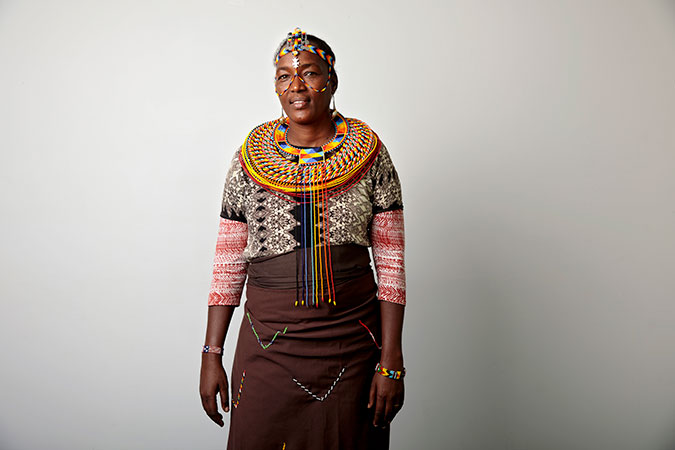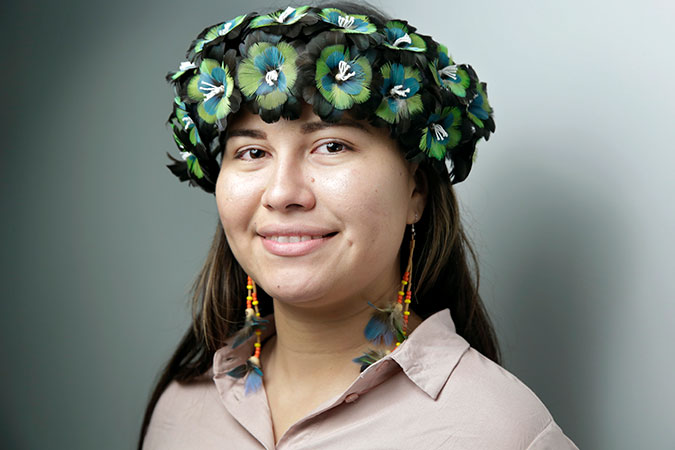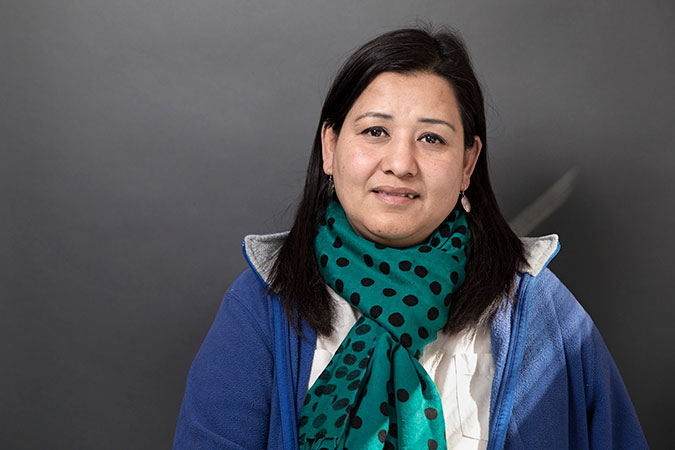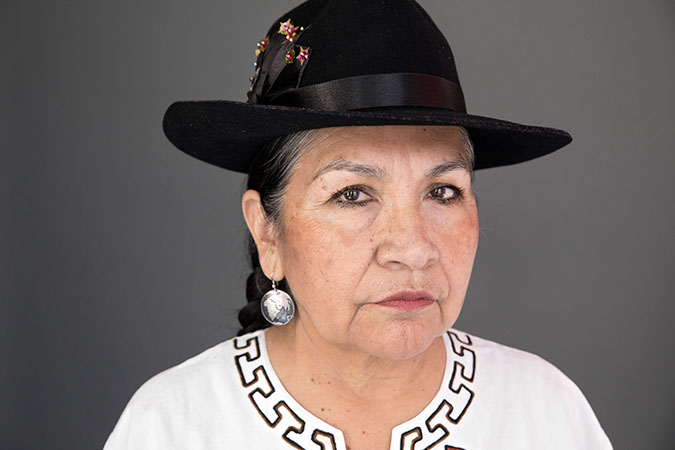Four indigenous women who are claiming their space
Date:
Indigenous peoples live across 90 countries, represent 5,000 different communities and speak a majority of the worlds languages. They account for less than 6 per cent of the world’s population, but make up 15 per cent of the poorest worldwide.
As more than 1,000 indigenous representatives come together in New York for the United Nations Permanent Forum on Indigenous Issues, this year focusing on the theme “Indigenous peoples’ collective rights to lands, territories and resources”, we’re highlighting some of the groundbreaking women activists from indigenous communities around the world.
Despite continued threats to their land, security and the environment, indigenous women play important roles in their communities and beyond. From northern Kenya’s Rendille people, to the Quechua community in Peru, indigenous women are speaking up for women’s empowerment, for the conservation of land, and for their communities’ rights.
Alice Lesepen, Kenya
A strong advocate for girls’ education and the protection of indigenous peoples lands and traditions, Alice Lesepen is a member of the Rendille Community in Marsabit County, Kenya. She works at the grassroots level to improve the status of indigenous women.
“Rural and indigenous women’s voices are so important. We started our women’s group in 2002. Most of the women in the community had not gone to school, but we wanted to improve our livelihoods. We knew the only way to do this was by coming together, so we can bring together our ideas on land management and resource management. It’s so important for women to be able to learn, and understand all of this. That’s why we are seeing many women in better positions today, because we’re raising our voices. If we keep coming out and saying enough is enough, it will get better for us. We are able to see the light at the end of the tunnel now, but we still have a lot of work to do.”
Rayanne Cristine Maximo Franca, Brazil
Rayanne Cristine Maximo Franca is an indigenous youth activist from Brazil. Since leaving her home at 17, she has embarked on a relentless pursuit of rights and recognition for young indigenous women. Rayanne has organized and gathered the perspectives of young indigenous women in Brazil to be included in the first national agenda for indigenous women.
“I was among 35 indigenous students out of some 22,000 students in the University of Brasília. Even the teachers mocked us. One teacher said, why were we taking classes? We should walk naked and live in the forest.
I joined the Indigenous Youth Network in Brazil and started to organize indigenous youth to fight the discrimination that we faced every day. We formed the first organization of indigenous students at the University of Brasilia and negotiated specific policies for indigenous students.”
Pratima Gurung, Nepal
Pratima Gurung, 37, is an activist for the rights of Indigenous peoples and women with disabilities in Nepal and Asia, member of the Steering Committee of the Indigenous Persons with Disabilities Global Network. Born in Pokhara, Nepal, Gurung became disabled at seven years of age. Today she one of the most prominent voices in Nepal and Asia on the rights of indigenous women with disabilities and seeks their leadership, inclusion and participation in decision-making at all levels.
“I became disabled at seven, when I lost my hand in a truck accident. Suddenly, everything changed. People had different perceptions about my future—what I should do and not do, whether I should go to school, or whether I should get married…I was lucky that my parents were educated and they never cut any corners with my education. Most indigenous women and women with disability in my country do not get that opportunity like me.
Today, in Nepal, I am leading the advocacy for women with disabilities and indigenous women. Most disabled peoples’ organization, indigenous peoples’ organization and state mechanisms in my country don’t cater to the specific needs and unique realities of indigenous women with disabilities.”
Tarcila Rivera, Peru
Tarcila Rivera Zea is a Quechuan activist from Ayacucho, Peru, and Founder of the organization Chirapaq. She is a journalist by profession and for more than 30 years has worked as an activist for indigenous peoples' rights, particularly those related to women, children and indigenous youth in national and international areas.
“I volunteered as a journalist, exposing the discrimination and abuses that indigenous women and girls endured. I brought to light the cases of women coming out of prison with children of rapes they had endured while in prison. None of these women knew they had the right to denounce and report the violence they had experienced. It had become a normal part of their lives…because they were indigenous and women.
Indigenous women not only need the same opportunities as everyone else, they need specific opportunities to affirm their identity and become aware of their own rights.”



